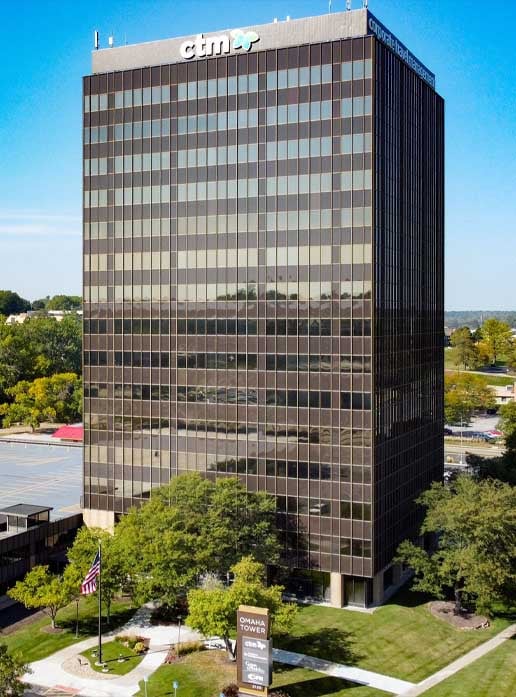Pursuing or Defending Against a Tortious Interference Claim in Nebraska
By Scott Jochim
An individual or entity’s interference with an existing or potential business relationship can be a major threat to the success of your company. When informal negotiations to correct the issue fail or are simply not available, a tortious interference claim may be a suitable means of achieving relief. An action for tortious interference may be based on a party disrupting a current business relationship or preventing a future business relationship. The former is commonly referred to as “tortious interference with a business relationship”, and has been defined as “a third party’s intentional inducement of a contracting party to break a contract, causing damage to the relationship between the contracting parties” Black’s Law Dictionary 1627 (9th ed. 2009). The latter is commonly referred to as “tortious interference with a business expectancy”, and has been defined as “an intentional, damaging intrusion on another’s potential business relationship, such as the opportunity of obtaining customers or employment.” Id. Some jurisdictions refer to these claims as “tortious interference with an existing contract” and “tortious interference with economic relations.”
Requirements for Pursuing a Tortious Interference Claim in Nebraska
Under Nebraska law, any plaintiff bringing an action for tortious interference with a business relationship or tortious interference with a business expectancy must prove five elements. First, it must be shown that a valid business relationship or expectancy existed at the time of the tortious interference. Second, the interferer must have been aware of the relationship or expectancy. Third, the act of interference must have been unjustified and intentional. Fourth, there must be proof that the interference caused the harm claimed by the plaintiff. Fifth, there must have been actual damage to the plaintiff whose business relationship or expectancy was allegedly harmed. Forest Prods. Indus. v. Conagra Foods, Inc., 460 F.3d 1000, 1002 (8th Cir. Neb. 2006) citing Macke v. Pierce, 266 Neb. 9, 14, 661 N.W.2d 313, 317 (2003).
Each of these individual elements requires a deeper analysis based on the application of the specific facts of each case. For example, in determining whether or not an act was “unjustified”, the Nebraska Supreme Court considered such factors as the alleged wrongdoer’s motive, the relationship between the parties, and any societal interests which may be in play. Macke v. Pierce, 266 Neb. 9, 14, 661 N.W.2d 313, 317-318 (2003). The strength of any tortious interference claim depends on the facts surrounding your individual situation, and a litigation and business law attorney at Croker Huck can assist you in determining whether or not to pursue a claim and how best to achieve relief for the harm caused to your business.
Common Defenses to a Tortious Interference Claim
If a party brings a tortious interference claim against you, a Croker Huck litigation attorney can assist you in raising available defenses to protect against any potential liability. The Nebraska Supreme Court has accepted the defense of legitimate competitive activity (Miller Chemical Co. v. Tams, 211 Neb. 837, 842-843, 320 N.W.2d 759, 763 (1982)); responsibility for the welfare of a third person or justified interference (Lamar Co., LLC v. City of Fremont, 278 Neb. 485, 497, 771 N.W.2d 894, 905-906 (2009)); and giving truthful information to another (Recio v. Evers, 278 Neb. 405, 421, 771 N.W.2d 121, 133 (2009)), to name a few.
Other defenses have been accepted by the 8th Circuit Court of Appeals and courts in other jurisdictions if certain additional requirements are met. Such defenses include having a financial interest in the party which the alleged interferer causes not to enter into a potential contract, causing a third person to not enter an agreement with a certain party in order to influence the other party’s business policy, honestly giving requested advice, asserting a bona fide claim which causes a third person to abandon a current contract or not enter into a potential contract, or preventing an illegal agreement or one that is contrary to public policy. Phil Crowley Steel Corp. v. Sharon Steel Corp., 702 F.2d 719, 722 (8th Cir. Mo. 1983); Winter Hill Frozen Foods & Services, Inc. v. Haagen-Dazs Co., 691 F. Supp. 539, 548 (D. Mass. 1988); Tsiatsios v. Anheuser-Busch, Inc., 2009 WL 114557 (D.N.H.), 14-15 (2009); Hold-Trade Int’l v. Adams Bank & Trust (In re Quality Processing), 9 F.3d 1360, 1365-1366 (8th Cir. Neb. 1993); CQ Int’l Co. v. Rochem Int’l, Inc., USA, 2010 WL 2292162 (D. Mass.), 52-53 (2010).
The litigation and business law attorneys at Croker Huck can assist you in pursuing or defending against a tortious interference claim. Please contact them at 402-391-6777 or through our website contact page.
The content of this article is for informational purposes only. It is not legal advice, nor is it intended to create, and your receipt of it does not constitute, an attorney-client relationship. This article may only be reproduced in its entirety (without modification) for the individual reader’s personal and/or educational use and must include this notice. The content of this article is intended to be up-to-date, but may or may not reflect the most current legal developments. Croker Huck Law Firm assumes no liability or responsibility for any errors or omissions contained within this article. You should not act or refrain from acting based upon this article without seeking professional legal counsel. This article only provides a brief overview and an attorney should be consulted if you have questions regarding this topic in relation to your specific situation. To learn more contact a Croker Huck attorney at 402-391-6777 or through our website contact page.

